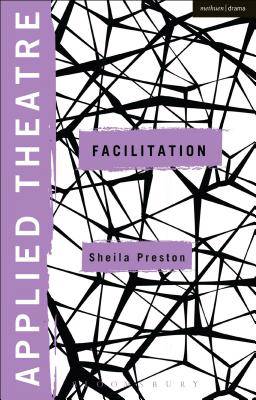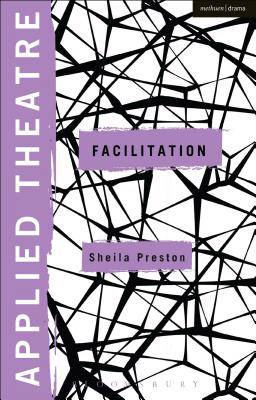
Bedankt voor het vertrouwen het afgelopen jaar! Om jou te bedanken bieden we GRATIS verzending (in België) aan op alles gedurende de hele maand januari.
- Afhalen na 1 uur in een winkel met voorraad
- In januari gratis thuislevering in België
- Ruim aanbod met 7 miljoen producten
Bedankt voor het vertrouwen het afgelopen jaar! Om jou te bedanken bieden we GRATIS verzending (in België) aan op alles gedurende de hele maand januari.
- Afhalen na 1 uur in een winkel met voorraad
- In januari gratis thuislevering in België
- Ruim aanbod met 7 miljoen producten
Zoeken
€ 254,45
+ 508 punten
Omschrijving
Applied Theatre: Facilitation is the first publication that directly explores the facilitator's role within a range of socially engaged theatre and community theatre settings. The book offers a new theoretical framework for understanding critical facilitation in contemporary dilemmatic spaces and features a range of writings and provocations by international practitioners and experienced facilitators working in the field.
Part One offers an introduction to the concept, role and practice of facilitation and its applications in different contexts and cultural locations. It offers a conceptual framework through which to understand the idea of critical facilitation: a political practice that that involves a critical (and self-critical) approach to pedagogies, practices (doing and performing), and resilience in dilemmatic spaces. Part Two illuminates the diversity in the field of facilitation in applied theatre through offering multiple voices, case studies, theoretical positions and contexts. These are drawn from Australia, Serbia, Kyrgyzstan, India, Israel/Palestine, Rwanda, the United Kingdom and North America, and they apply a range of aesthetic forms: performance, process drama, forum, clowning and playmaking. Each chapter presents the challenge of facilitation in a range of cultural contexts with communities whose complex histories and experiences have led them to be disenfranchised socially, culturally and/or economically.
Part One offers an introduction to the concept, role and practice of facilitation and its applications in different contexts and cultural locations. It offers a conceptual framework through which to understand the idea of critical facilitation: a political practice that that involves a critical (and self-critical) approach to pedagogies, practices (doing and performing), and resilience in dilemmatic spaces. Part Two illuminates the diversity in the field of facilitation in applied theatre through offering multiple voices, case studies, theoretical positions and contexts. These are drawn from Australia, Serbia, Kyrgyzstan, India, Israel/Palestine, Rwanda, the United Kingdom and North America, and they apply a range of aesthetic forms: performance, process drama, forum, clowning and playmaking. Each chapter presents the challenge of facilitation in a range of cultural contexts with communities whose complex histories and experiences have led them to be disenfranchised socially, culturally and/or economically.
Specificaties
Betrokkenen
- Auteur(s):
- Uitgeverij:
Inhoud
- Aantal bladzijden:
- 272
- Taal:
- Engels
- Reeks:
Eigenschappen
- Productcode (EAN):
- 9781472576927
- Verschijningsdatum:
- 20/10/2016
- Uitvoering:
- Hardcover
- Formaat:
- Genaaid
- Afmetingen:
- 140 mm x 216 mm
- Gewicht:
- 462 g

Alleen bij Standaard Boekhandel
+ 508 punten op je klantenkaart van Standaard Boekhandel
Beoordelingen
We publiceren alleen reviews die voldoen aan de voorwaarden voor reviews. Bekijk onze voorwaarden voor reviews.









